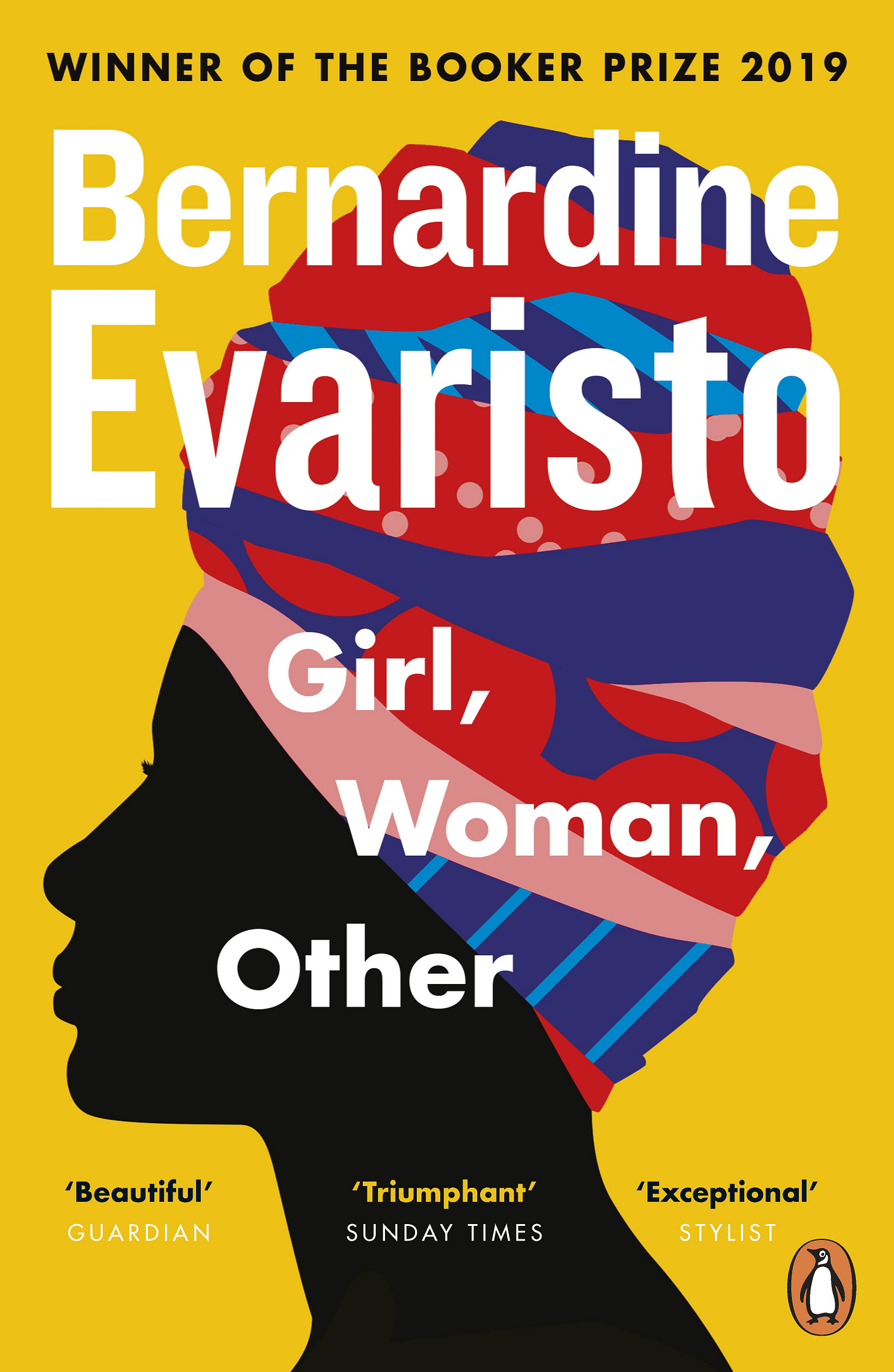(This article contains spoilers for the movie Bardo: False Chronicle of a Handful of Truths)
Who am I? A daughter to my father and my mother, a sister, a partner, a colleague, an ex-colleague, someone you met a long time ago while traveling.
Every person has a different view of me. A different view than I have of myself. And each and every person sees me differently than everyone else.
It's not only because they have their own preconceptions and ideas of me and who I should be. People who have crossed my path have spent different amounts of time with me, at varying moments, and have experienced me differently.
I believe I have changed a lot throughout my life. Sometimes I think of myself as a pop diva, with my own eras. If someone had met me in another era they would be surprised by me now. But I'm biased and I will always be. Maybe I'm the only one that can really see the changes since I'm the only one who has been with myself my whole life.
Understanding who we are is complicated, maybe even impossible. As a simple example, consider which kind of music you enjoyed 20 years ago and how significantly you have developed your taste. How much have you changed in multiple aspects? But if we think the other way around and project ourselves 20 years into the future we usually don't expect we will change as much. We tend to think we have reached the final stage of who we are and what we will be, but in reality, we are constantly evolving.
I feel like a patchwork. Many different parts of me are stitched together, always changing and being changed by the world and people around me.
That's why I enjoy full characters and stories that explore identity. We are in a constant search for who we are and what we are doing on this tiny rock traveling somewhere in the Universe.
And that's also why I was pretty moved by the movie Bardo: False Chronicle of a Handful of Truths. And as this award season approaches, I'm quite disappointed to see this movie snubbed by them.
Exploring who we are
The movie Bardo touches on many topics, but the main one is identity. As a sort of autobiography, it is directed by Alejandro Iñárritu. Via the character of Silverio, a Mexican mid-aged journalist and documentary director, he explores his identity through his relationships with his parents, daughter, son, wife, work, the country he is from (Mexico), and the country he lives in (US).
I understand Bardo is not everybody's cup of tea. It's not a simple movie. It is almost 3 hours long and it's filled with metaphors, in some kind of magic realism. It is often filmed with a wide-angle camera, in which the main character Silverio is in the center.
As Ada from
puts it in her review of the movie:The cameras of BARDO, False Chronicle of a Handful of Truths capture almost too much in each shot. The camera’s wide angle is both nauseating and relieving, feeling vulnerable and exposed while also being a breath of fresh air. And like the cinematography, BARDO is a film that’s scope is deafeningly broad, loud, and complex. Like Silverio, the controversial subject of the movie, BARDO never pins itself to a specific perspective without taking a step backward to openly and explicitly examine itself, and then taking another step to examine its self-examination.
As in Iñárritu's past work Birdman, Bardo keeps moving. Long and continuous shots that follow our main character while everything around him is moving give us a sense of how it feels to be him. We are wearing his shoes for most of the movie, which offers a more intimate feeling to the character. It is all about him, his perspectives, and most of all his idiosyncrasies.
It's a movie full of beautiful shots and figures of speech that has, at the same time, his main character questioning his own work as being too pretentious. The main character Silverio continuously contradicts himself, revealing a lot of self-awareness of Iñárritu about his own work and even the movie itself.
Watching the film, his constant struggle between his Mexican roots and life in the US was what I enjoyed the most. I felt a few of my own struggles being reflected back to me.
Am I the conquistador or the conquistado?
(The colonizer or the colonized)
Being a white person in Brazil is pretty weird. We are not the majority in numbers, around 45% of the population, but we are the majority indeed. In politics, power, money, status, privilege, etc.
I've been fascinated by the topic of inequality my whole life. It comes from growing up in a highly inequitable country, where being part of the 1% means earning around $96,000 yearly (compared to $597,815 in the US). Or from data showing that the Human Development Index (HDI) of the neighborhood I grew up in and where my parents still live is comparable to the one in Switzerland (0.96). At the same time, 1,5 km (a mile) away there's a slum (favela) with an HDI comparable to that of India (0.66).
But this huge gap between rich and poor is not specific to Brazil. All of Latin America - and especially Mexico - has enormous inequality which is linked to racial disparities as well. This asymmetry is masterfully depicted in Bardo. He constantly reflects on how he can enjoy a lot of privilege in Mexico while still being treated as a second-class citizen in the US.
Mexican-U.S. relations are complicated in Bardo (and in real life), and Iñárritu illustrates how this leads to internal struggles within himself, with his family, and with his identity. He reflects on the former war between the two countries, the difficulties of immigration, and the high rates of crime in his country.
But even if he does care about the plight of his people in Mexico he is not really part of them. Not really. Not the ones that cross on foot in the desert while he films them. Not the ones disappearing and dying due to rampant violence in the country. There's a distinction there that he masterfully explores in many different scenes.
I think the two most comparable scenes in this sense are when Silverio is stopped at the US border. He is told he cannot call the country his home. He gets mad, rightly so, because he has the correct documentation and has lived in the country for 20 years. After a confrontation, his daughter yells at the board guard that he looks more Mexican than she does. Clearly stating a racial difference between the two "types” of Mexicans.
At the same time, in another scene, Silverio, his daughter, and their maid are trying to enter a fancy beach club in Baja California, Mexico. The guard says that maids are not allowed. After a bit of protest, Silverio says "it's just the rules”, while his daughter takes the maid's side and yells at the guard to "shove the beach up his ass", storming out.
The movie keeps giving us contrasting scenes like these. Although Silverio seems to be someone who is concerned about social injustices and portrays them in his documentaries, he has some distance from his subjects. All of those questions are raised by the movie itself. In a scene during breakfast, his son questions him about not really knowing the people he is portraying in his documentaries. Silverio gets mad because it's true.
In another scene, hundreds of dead bodies are seen on the ground in Mexico City. Silverio looks around and finds the Spanish conquistador Hernán Cortéz, and they have an argument about colonization. When he seems to be winning the discussion, we discover that all of those people lying on the ground were just props for the movie. The scene is broken to reveal that they are actually making a film.
And in maybe my favorite scene, we see an interview with probably a cartel leader in one of Silverio's documentaries. In this interview, he clearly says how intellectuals and documentarians like him are disconnected from the rest of the people in Mexico.
As he questions the main character in his film, Iñárritu continuously questions himself as well. What is he? A Mexican worried about his compatriots and himself being treated less than in the US? Is he someone concerned about the fate of those trying to cross the border? Or is he a rich man that can see the injustices from far away and just use them for his own movies and personal success? But if he does need help in the US as Silverio does in the train scene, will he be seen as no one? Another immigrant?
The reasons I enjoyed this so much
I have never seen a movie that threads so well on the topic of being a privileged immigrant as Bardo does. I can say I'm one for sure. Still, I have had my fair share of xenophobic attacks here in Belgium, Germany, and Portugal. It is just such a weird feeling when you are used to being treated fairly well or fairly commonly back in your country.
It's also f*cked up that most people treat me quite well here in Belgium and surrounding countries because I'm white (not Scandinavian white, of course), but I have been treated quite poorly by them once they knew I was Brazilian. In fact, Portugal was one of the most xenophobic countries to me, where people could tell my nationality by me simply saying Good morning.
It's incredibly weird how I can be privileged and suffer setbacks at the same time for being an immigrant. Depending on which of the two nationalities I use (or am perceived as), I'm treated differently. I even use different nationalities for different kinds of people. To my friends I'm Brazilian, to my landlord and the Belgian government I'm Portuguese (I'm legally both).
That's also a common feeling for African immigrants. Chimamanda Ngozi in her books and speeches talks about how she only turned black once she lived in the US. In Nigeria, she was just herself. Another novelist Chibundo Onuzo, also discusses in the Rough Translation podcast, how different the perceptions of herself are in the UK and in Nigeria.
It's a shocking and disconcerting experience. Being randomly treated poorly or even aggressively for the simple reason of having come from a certain country. You start doubting yourself and fear normal interactions with locals.
No one should be treated less than others for things they have no control over. This includes their country of origin, the color of their skin, gender, sexual orientation, or whatever. I hope the more we discuss racism and xenophobia through art such as books series, movies, and books, the better it will get. And the more we see representations of immigrants where they are just normal people living their lives, the better.
Girl, Woman, Other by Bernardine Evaristo
Released in 2019, this book offers an insightful exploration of contemporary British identity. With each chapter covering different characters and the stories of their lives, Evaristo reveals the individual identity struggles of her 12 protagonists. By exploring issues of race, gender, sexuality, and class, the novel takes on a deeper, more complex meaning. This allows readers to think more critically about the state of British identity in the 21st century. Each character is significant in its own right and seeks to define a distinct yet intertwined identity.
Bardo: False Chronicle of a Handful of Truths
Well, I think I have convinced you by now. Although as I said before, be prepared for an unconventional movie. It touches on many other topics such as family relationships and grieving natural abortions. It's pretty disappointing to see this movie being snubbed by all the awards especially since it's one of my favorites from Alejandro Iñárritu, so far. Bardo's only nomination for the Oscars is for Best Cinematography. The Revenant which got much more attention, the Golden Globe for Best Picture, and finally got Leonardo de Caprio his Oscar is a bore in comparison, to be honest.
Master of None is a great show. It is a critically acclaimed Netflix series and a great example of how to successfully explore modern-day struggles and conflicts. It tackles difficult topics in a thoughtful and respectful way. Racism and sexism, immigration, family, aging, technology, and much more. It gives viewers insight into the lives of its diverse characters who are all memorable in their own ways.














amazing review as always :)
(Sometimes I also think of myself as a pop diva) 🤗✨